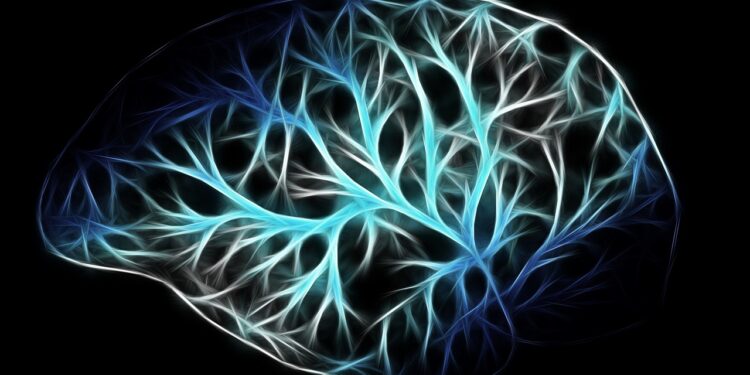Ever heard about a condition called “water on the brain”? Well, it is not actually real water in the brain, it’s a clear fluid made of water and other substances, called cerebrospinal fluid.
The brain basically controls almost everything we do. This fluid flows around the brain and spinal cord, which keeps everything in check. But there could be a problem if this fluid is too much or isn’t properly absorbed into the bloodstream. One of the many problems it can lead to is hydrocephalus.

What is Hydrocephalus?
Hydrocephalus is a medical condition where the cerebrospinal fluid cushioning the brain and spinal cord becomes too much in the brain’s ventricles (hollow spaces located in the brain). According to the National Library of Medicine, “the overall global prevalence of hydrocephalus is approximately 85 per 100,000 individuals.”
Symptoms of Hydrocephalus
Hydrocephalus can affect people of all age groups, and its symptoms differ depending on the person’s age.
Symptoms in Infants
It’s not always easy to tell when something is wrong with a child since they can’t tell you exactly how they feel. But you can look out for:
- Growing head: Usually if a baby has hydrocephalus their head begins to grow faster than normal. It’s weird but that’s definitely an indicator, so keep an eye out for that.
- A soft spot on the top of the baby’s head. The area may look swollen or feel tight.
- The baby may vomit a lot, or have some kind of vomit that projects forward barf. That’s because there’s too much pressure in their brains.
- If the baby is unnecessary cranky and can’t get soothed easily, it may not be a sign of hydrocephalus. But it is a sign that something is up.
- They may have trouble eating
Sometimes, babies suffering from hydrocephalus have eyes that are always looking down. They call those kinds of eyes, “sunsetting eyes”.
Symptoms in Children
When children are older, their symptoms change and become easier to spot. You can look out for:
- Constant headaches, especially in the morning
- Constant nausea and vomiting
- Have a vision where things are blurry or double
- Have trouble walking or just keeps stumbling when they walk
- Suddenly become more irritable
- Have trouble focusing or remembering things
Symptoms in Adults
The symptoms of hydrocephalus in adults are almost the same as the symptoms in children. But one symptom that adults and children don’t have in common is the frequent urges to urinate.
Causes of Hydrocephalus
There are different types of hydrocephalus and each of these types have their own individual causes.
Obstructive Hydrocephalus: This is also called a non-communicating hydrocephalus. It occurs when something blocks the flow of the cerebrospinal fluid through the ventricles. If the pathway gets stuck, the fluid gradually builds up behind the blockage which then causes pressure to build up in the brain.
What Causes This?
- Brain tumors: Tumors can grow in such a way that they block the pathway where the cerebrospinal fluid flows through.
- Birth malformations: Some babies are born with issues like a nerve aqueduct which can block the flow of cerebrospinal fluid.
- Cysts: Cysts are fluid-filled sacs that can form in different organs of the body and the brain is no exception. Cysts can develop in the brain and block cerebrospinal fluid flow.
Non-obstructive hydrocephalus: This is also called communicating hydrocephalus which happens when cerebrospinal fluid isn’t properly absorbed into the bloodstream. There isn’t any physical blockage though, the fluid still builds up.
What Causes This?
- Overproduction: Sometimes, the brain makes too much cerebrospinal fluid which can be overwhelming. An overproduction of cerebrospinal fluid is rare and because of that, it isn’t fully understood. But when it does happen, it’s usually due to some abnormalities like choroid plexus tumors, birth malformations, an inflammation or an infection.
- Absorption issue: This could be that the arachnoid villi, the tiny structures that absorb cerebrospinal fluid into the blood are not working.
Other Causes of Hydrocephalus
Asides from the aforementioned causes there are other causes of hydrocephalus.
Infections: infections like meningitis which causes swelling in the brain might block the flow of cerebrospinal fluid or even tamper with how the body absorbs the fluid.
Head injuries: Trauma to the head like bumping the head into a wall, can lead to bleeding or swelling which can potentially block the pathway of cerebrospinal fluid.
Hemorrhage: There can be bleeding in the brain which may not necessarily be from trauma like bumping your head against the wall but from conditions like stroke or aneurysm. Conditions like this can cause a clot of blood which blocks the flow of cerebrospinal fluid through the pathway.
Bottom Line
Hydrocephalus is when the fluid in your brain, called cerebrospinal fluid, builds up and puts pressure on your brain. This can cause different problems depending on your age, like a growing head in babies or constant headaches in kids and adults. It happens for different reasons

















